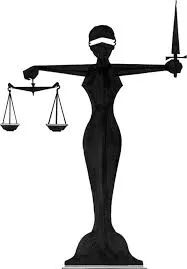
JUDICIARY HAS DESTROYED DEMOCRACY IN SOUTH EAST – CSOs
A Coalition of Civil Society Organisations (CSOs) domiciled in the South Eastern states has accused the judiciary of destroying democracy in the region.
According to the group, the judiciary has been playing an ignoble role in the lack of progress in the region since the advent of the democratic governance, especially since 2019.
The group stated this yesterday at a one-day symposium in Umuahia, Abia State to mark the 10th anniversary of Southeast Democracy Clinic, a platform geared to help deepen civil rule and ensure that the dividend of democracy gets to people of the zone.
It alleged that the judiciary has been in bed with “vagabonds of power ” in the zone who they claim, brazenly steal the mandate of the people and mock them with the usual refrain ‘Go To Court’, confident that their loot is secured.
According to the CSOs, it was only the 2023 governorship election in Abia and the off-season governorship election in Anambra State in 2022 that had a semblance of electoral credibility, and which outcomes represented the will of the people of the two states, stressing that judiciary hasn’t been fair in delivering justice to the people of Imo in the recent off season poll, as well as Enugu and Ebonyi States in the 2023 general elections.
While zeroing on Imo, Dr. Emeka Ononamadu, Founder of Southeast Democracy Clinic and former Resident Electoral Commissioner, Enugu State, queried what the Imo State Electoral Tribunal meant when it ruled in its recent judgment that the poll was in substantial compliance with enabling statutes when issues of widespread violence, thuggery, intimidation of voters, Bimodal Voter Accreditation System (BVAS) issues, vote buying, manipulation of results, snatching and or destruction of ballot boxes were rife.
Ononamadu, a lawyer, insisted that there was widespread violence and intimidation, electoral malpractice, incidents of ballot box snatching, vote-buying and manipulation of results.
“These practices undermined the integrity of the election process. Also Logistical Problems: Delays in the delivery of electoral materials and issues with the functionality of the BVAS led to significant disruptions and confusion at many polling stations.
“Security Failures: Despite the presence of security forces, there were failures in effectively securing polling units and ensuring the safety of voters and election officials,” he added.
“Low Voter Turnout: Due to fears of violence. Amidst these and other plethora of complaints reported by election observers Ononamadu noted that the tribunal ruled that the poll was in substantial compliance with enabling laws.
Also speaking at the symposium with theme :Post Election Judgment and Conflicting CSOs Observation Report: An Indictment on CSOs or Judicial Intervention, Dr. Chris Nwadigo, Executive Director, Peoples Rights Organisation, noted that there’s no law prohibiting the admission of report of election observers in evidence in court, and wondered why the nation’s courts have failed to leverage on reports of election observers to dispense justice.
According to him, Nigeria should join other nations in the world who he said use such reports as grounds for judicial intervention in election disputes.
In a communique drawn at the end of the symposium and made available to this medium the participants called on the judiciary to use electoral justice to save Nigeria democracy, starting with the outstanding post-election case in Imo StateOther participants in the event included the State Coordinator of National Human Rights Commission, Bar. Uche Nwokocha, the Convener of Southeast Democracy Clinic Dr. Temple Nwosu, who facilitated the event, the Special Assistance to the Abia State Governor on People with Disabilities, Mr. David Anyaele, the Special Adviser to Abia State Governor on Ease of Doing Business, Bar. Jennifer Agbonma Ukaobasi, the Executive Director of Citizens Centre for Integrated Development and Social Rights, Ms. Nnenna Onyenoha, among others.
 Premium News
Premium News